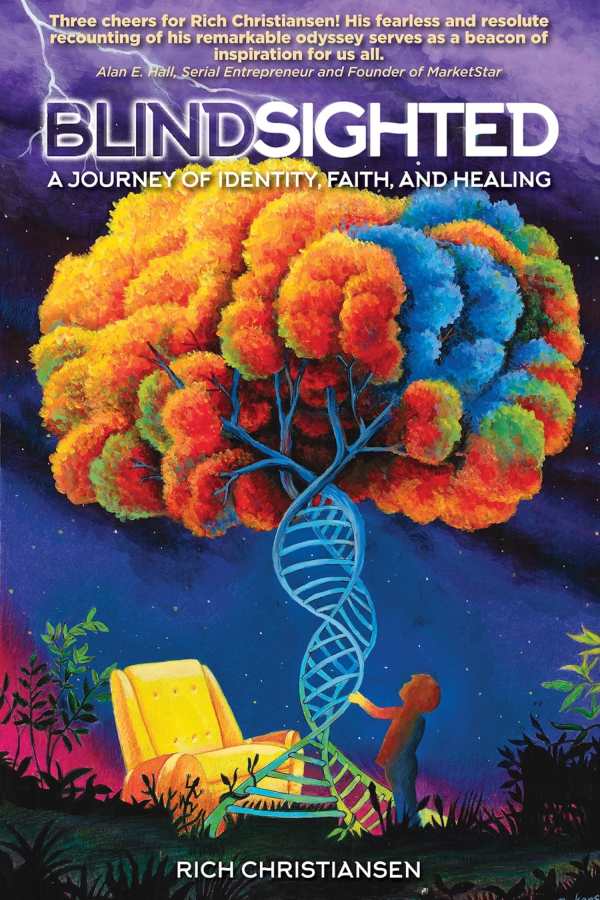Blindsighted
A Journey of Identity, Faith, and Healing
The loving family memoir Blindsighted is about a genealogical investigation in pursuit of a stronger sense of self.
Rich Christiansen’s reflective memoir Blindsighted catalogs his heritage and grapples with the shock of a secret revealed after fifty years.
Born in the 1950s, Christiansen was the first son of a devoted Mormon family. Sections of his book are dedicated to his parents and his upbringing, all working toward a changing understanding of his origins. Indeed, the book is thoughtful in covering all the separate people who made Christiansen who he is, in more ways than one.
In depicting Christiansen’s family members—and one family connection (a doctor, David, who becomes more important as the text progresses)—the book exudes warmth and gratitude, expressing pride and love for his family in specific terms: “That’s how my grandparents met! They were strong, hard working people. And they had to be, given what they would face.” Christiansen’s father, John, had been blind since early childhood; he overcame prejudice and became a successful lawyer. His mother, Laurel, was an artist, and she is recalled in terms of her steadfastness and strength. Christiansen’s siblings are also written about with love, which is apparent even when the book covers moments of competition between them. The book becomes akin to a family album for posterity: “I desire that my children, my grandchildren, and my great-grandchildren have this story and boldly tell it and retell it with confidence and truth for generations to come.”
Attention is also devoted to the minutiae of everyday life, from the 1930s onward, as well as to the historical events in the background of the family’s life, including the Great Depression and World War II: “Finally, one day—Bzzzzzzzzzzzzzzzzzzz … The radio crackled and buzzed as it relayed the joyous news. The Japanese have accepted fully the surrendered terms of the United Nations.” Concerns such as that Nazis persecuted people with disabilities—of particular concern to Christiansen’s father—are also conveyed.
The prose is humble, direct, and grounded by Mormon faith: “Ancestry and genealogy research is vitally important for Mormons because we are both genetically and spiritually connected to our ancestors.” Christiansen’s curiosity about his own ancestry persists through and directs the whole book.
There is a drastic shift in tone once Christiansen’s true genetic background is revealed, with the rest of the text coalescing around a related revelation and the family’s handling of the aftermath. At points, the book begins to repeat information without need. Still, on the whole, it is poignant, delving with honesty and introspection into what it means to be part of a family and coming to a satisfying conclusion with reflections on what it means to be oneself.
The loving family memoir Blindsighted is about a genealogical investigation in pursuit of a stronger sense of self.
Reviewed by
Natalie Wollenzien
Disclosure: This article is not an endorsement, but a review. The publisher of this book provided free copies of the book and paid a small fee to have their book reviewed by a professional reviewer. Foreword Reviews and Clarion Reviews make no guarantee that the publisher will receive a positive review. Foreword Magazine, Inc. is disclosing this in accordance with the Federal Trade Commission’s 16 CFR, Part 255.

